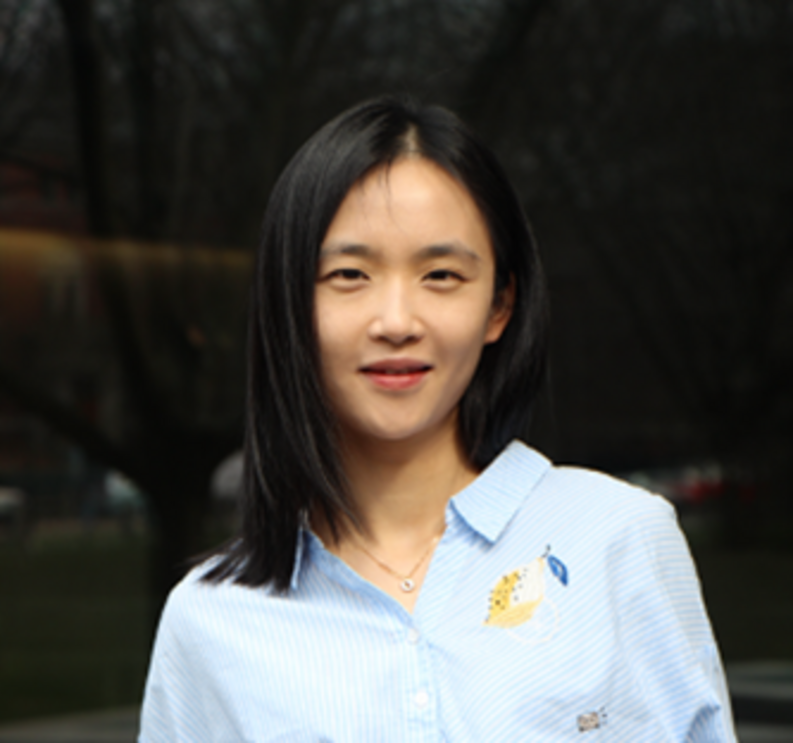"What I cannot create, I do not understand."\n— Richard P. Feynman
Biography
Rui Fang received her BS in the Integrated Science Program from Peking University in 2018, MS in Applied Math from Harvard University in 2020, and PhD in Biology from Harvard University in 2023. During her PhD studies, she worked in Ying Lu Lab at the department of Systems Biology, Harvard Medical School, where she developed a novel free-energy landscape approach to capture the conformational dynamics of the 26S proteasome by combining biophysical models with structural and kinetic measurements. In June 2023, she started the Lab of Protein Aggregation and Degradation in the School of Life Sciences, Westlake University as an independent Westlake Fellow, where she is investigating how the ubiquitin-proteasome system and the aggresome pathway help to dismantle the intracellular protein aggregates by integrating in silico and biochemical reconstructions and cell biology techniques. She is broadly interested in developing therapeutic approaches to combat pathogenic protein aggregates in aging and neurodegeneration.
Research
Proteostasis is maintained by the ubiquitin-proteasome system (UPS) targeting aberrant proteins whose accumulation and aggregation are hallmarks of aging and neurodegenerative disorders. Previous studies demonstrated complex regulations of the formation and clearance of protein aggregates in eukaryotic cells, to minimize their damage to cellular activities, whose mechanisms remain largely elusive. Our group combines quantitative biochemical and biophysical techniques, high-throughput ‘omics’ technologies, high-content screening, and mathematical modeling and computational simulations in both reconstituted systems and live-cell models to elucidate how aberrant proteins are selectively degraded by the proteasome and how the cell processes the aggregates of misfolded proteins. We are broadly interested in revealing fundamental design principles in biology through in silico and biochemical reconstructions.
We are particularly interested in the following directions:
1. The functional mechanisms of the ATP-dependent quality control machineries in aggregate clearance such as the 26S proteasome and VCP/P97.
Previously, we developed a novel approach to simulate the ATPase's conformational dynamics using its empirical free-energy landscape (Fang et al, eLife 2022; Fang et al, STAR Protocols 2023). This approach revealed the design principles of the cooperative behaviors of proteasomal ATPases and can be generalized to simulate the dynamics of other large protein complexes among which ATP-driven disaggregases will be our next focus.
2. The mechanisms and functions of the aggresome pathway.
The "aggresome", known as a recruitment center for protein aggregates and damaged degradation machineries, arises in various stress conditions and may nucleate the formation of pathological aggregates in neurodegenerative diseases. We established the first in vitro model system to recapitulate the process of aggresome formation and clearance, which provides unprecedented opportunities to investigate the mechanism of the complex regulation of processing aggregated proteins in the cell.
3. Novel therapeutic approaches to combat pathogenic protein aggregates in aging and neurodegeneration.
Representative Publications
1. Rui Fang, Jason Hon, Mengying Zhou, and Ying Lu. An empirical energy landscape reveals mechanism of proteasome in polypeptide translocation. eLife 11 (2022): e71911.
2. Rui Fang+ and Ying Lu+. Simulating the conformational dynamics of the ATPase complex on proteasome using its free-energy landscape. STAR protocols 4.4 (2023): 102182.
3. Mengying Zhou*, Rui Fang*, Louis Colson*, ..., and Ying Lu. HUWE1 amplifies the ubiquitin modifications on protein substrates and stimulates their degradation. bioRxiv (in review).
4. Rui Fang*+, Luolan Bai*, ..., Timothy J Mitchison, and Ying Lu+. Dissect the signals and mediators of the aggresome pathway in protein aggregates clearance in cell-free systems (in preparation).
*Co-first author, +Corresponding author
Contact Us
fangrui@westlake.edu.cn
